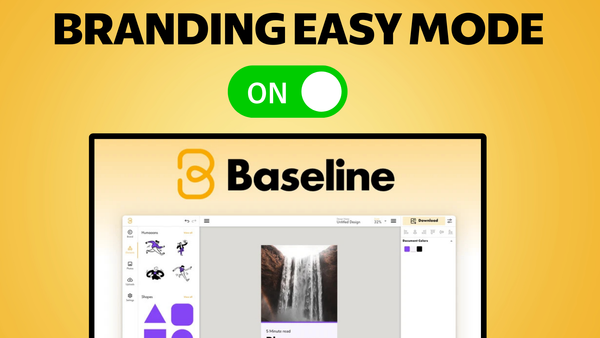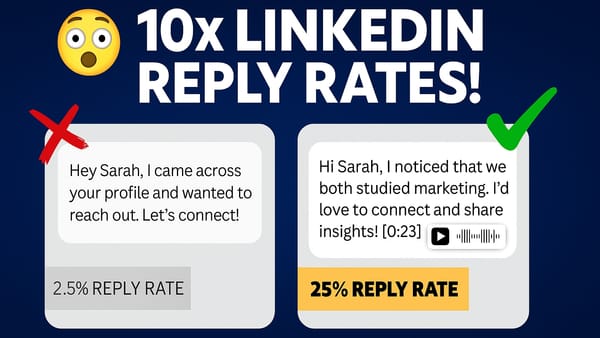Create An Online Course with Heights LMS Platform [AppSumo]
Transform your online teaching with Heights LMS: A cost-effective platform for creating, selling, and managing courses. One-time fee, no subscriptions.
![Create An Online Course with Heights LMS Platform [AppSumo]](/content/images/size/w1200/wordpress/2020/01/heights.jpg)
Introduction
In today’s digital age, creating and selling online courses has become an increasingly popular way for educators, entrepreneurs, and experts to share their knowledge and generate income. The Heights LMS (Learning Management System) platform, available through AppSumo, offers a comprehensive solution for those looking to enter the world of online course creation. This review will dive deep into the features, functionality, and overall value of the Heights platform, providing you with all the information you need to decide if it’s the right tool for your online course needs.
Dave Swift, from ThatLTD.Life, brings us this detailed review of the Heights platform, comparing it to other popular options like Teachable and exploring its various features. From course creation and video hosting to payment integration and student management, we’ll cover all aspects of this LMS to help you understand its strengths and potential limitations. Whether you’re a seasoned course creator or just starting out, this comprehensive guide will give you valuable insights into how Heights can help you build and grow your online education business.
Get HeightsOverview of Heights LMS Platform
The Heights LMS platform is a robust solution for creating and selling online courses, available through AppSumo for a one-time purchase of $79. This price point positions it as a more affordable alternative to subscription-based services like Teachable, while still offering a wide range of features.
Key Features of Heights LMS:
- Course Creation Tools: Easily create and structure your online courses with various lesson types, including text, video, and assignments.
- Student Management: Keep track of your students’ progress and engagement through a comprehensive dashboard.
- Payment Integration: Direct integration with Stripe and PayPal for seamless payment processing.
- Video Hosting: Optional video hosting service available for $9 per month with unlimited storage.
- Discussion Forums: Built-in community features to encourage student interaction and engagement.
- Customizable Landing Pages: Create attractive landing pages to promote and sell your courses.
- Gamification Elements: Incorporate badges and points to motivate and reward students.
- Digital Product Sales: Sell additional digital products alongside your courses.
Pricing and Scalability:
- Single AppSumo code: $79 for 100 active students and 2 authors
- Stackable codes: Ability to purchase multiple codes to increase capacity
- Example: 9 stacked codes for $711 allows for 3,300 active students and 10 authors
Platform Limitations:
- User Interface: The design is functional but may lack visual appeal compared to some competitors.
- Customization: Limited options for customizing the look and feel of your course site.
- Quiz Functionality: Absence of built-in quiz features, which are replaced by “projects.”
Despite these limitations, the Heights LMS platform offers a compelling package for those looking to start or expand their online course business without a significant upfront investment or ongoing subscription fees.
Course Creation Process
Creating a course on the Heights LMS platform is a straightforward process that allows educators to quickly set up and structure their content. The platform offers a variety of tools and options to customize your course and make it engaging for students.
Steps to Create a Course:
- Navigate to the “Courses” section and click “Create Course”
- Enter course title and description
- Add a cover image (with Unsplash integration for easy selection)
- Choose course difficulty level (optional)
- Set enrollment permissions and course visibility
- Configure course pricing and availability options
Course Structure and Content Types:
- Text and Content Lessons: Rich text editor for creating written content
- Video Lessons: Support for uploaded videos, external URLs, or embed codes
- Assignment Lessons: Create tasks for students to complete
- Download Lessons: Provide downloadable resources to students
- Audio Lessons: Option for audio-only content
Video Hosting Options:
- Native Heights Video Hosting: $9/month for unlimited storage after a free trial
- External Video Platforms: Support for YouTube, Vimeo, and other video hosting services
- Embed Codes: Flexibility to use various video players and hosts
Course Organization:
- Drag-and-drop lesson reordering
- Option to group lessons (though lacking a formal “module” structure)
- Release settings for drip content delivery
- Lesson completion requirements to control student progression
Content Creation Tips:
- Use a mix of content types to keep students engaged
- Leverage the rich text editor for formatting and embedding additional resources
- Consider using external tools for creating quizzes, as the platform lacks built-in quiz functionality
- Utilize the assignment feature to encourage practical application of learned concepts
While the Heights LMS platform provides a solid foundation for course creation, it’s important to note that it may lack some advanced features found in more expensive alternatives. However, for many course creators, especially those just starting out, the available tools should be more than sufficient to create engaging and effective online courses.
Video Hosting and Integration
One of the key components of many online courses is video content. The Heights LMS platform offers various options for incorporating videos into your lessons, catering to different needs and preferences.
Native Video Hosting:
- $9 per month for unlimited video storage
- One free video upload to test the service
- Direct upload through the platform interface
- Video processing and encoding handled automatically
External Video Hosting Options:
- YouTube: Full support for embedded YouTube videos
- Vimeo: Compatible with Vimeo-hosted videos
- Other Platforms: Ability to use custom embed codes for various video hosts
Video Player Compatibility:
- Heights Native Player: Fully integrated and optimized for the platform
- VideoCypher: Tested and works well with the platform
- VooPlayer: Some issues noted during testing, may require additional configuration
- YouTube Embeds: Seamless integration and playback
Best Practices for Video Integration:
- Consider bandwidth and loading times when choosing a video host
- Use a mix of video lengths to maintain student engagement
- Provide text transcripts or summaries alongside videos for accessibility
- Leverage video timestamps to help students navigate longer content
Video-Related Features:
- Ability to add text content alongside videos for context or additional information
- Option to set video lessons as required before progressing to next lessons
- Potential for creating video-only courses or blending video with other content types
While the Heights LMS platform offers flexibility in video hosting and integration, it’s important to test your chosen method to ensure optimal performance and user experience. The native video hosting option, while an additional cost, provides a streamlined solution that may be worth considering for creators who heavily rely on video content in their courses.
Payment Integration and Pricing Options
The Heights LMS platform provides robust payment integration options and flexible pricing models, allowing course creators to monetize their content effectively. This section explores the various features and settings available for setting up payments and pricing structures.
Payment Gateway Integration:
- Direct integration with Stripe and PayPal
- No additional transaction fees from Heights (beyond standard gateway fees)
- Easy setup process within the platform interface
Course Pricing Models:
- One-time Payment: Set a single price for lifetime access to a course
- Installment Plans: Offer split payments over a set period
- Subscription Model: Create recurring payment plans for ongoing access
- Free Enrollment: Option to offer courses at no cost
Program-level Pricing:
- Ability to set pricing for entire course bundles or programs
- Options for one-time fees, installment plans, or subscriptions at the program level
Upsell and Cross-sell Features:
- Create upsell offers for additional courses or products
- Set discounted prices for upsell items to encourage higher-value purchases
Customizable Checkout Process:
- Edit copy for student checkout pages
- Add refund policy and billing details
- Include testimonials to increase conversion rates
- Customize terms and privacy policy
Best Practices for Pricing:
- Consider your target audience and market positioning when setting prices
- Offer multiple pricing options to cater to different customer preferences
- Use installment plans to make higher-priced courses more accessible
- Leverage upsells to increase average order value
Limitations and Considerations:
- No built-in affiliate program for course promotion
- Limited options for complex pricing structures or dynamic pricing
- Inability to offer time-limited discounts or promotional pricing directly through the platform
The payment integration and pricing options provided by the Heights LMS platform offer course creators the flexibility to experiment with different monetization strategies. While it may lack some advanced features found in more expensive alternatives, the available options should be sufficient for most online course businesses, especially those just starting out or operating at a smaller scale.
Student Management and Engagement
Effective student management and engagement are crucial for the success of any online course. The Heights LMS platform offers several features to help course creators track student progress, facilitate communication, and encourage active participation.
Student Dashboard:
- Comprehensive overview of enrolled students
- Track login frequency and time spent on the platform
- Monitor course enrollment status for each student
- View individual student orders and financial information
Progress Tracking:
- See completion rates for individual lessons and courses
- Track assignment submissions and review student work
- Ability to manually mark lessons as complete for students if needed
Communication Tools:
- Built-in messaging system for direct communication with students
- Option to enable or disable private messaging between students
- Discussion forums for course-wide or topic-specific conversations
User Roles and Permissions:
- Create custom user roles (e.g., beginner, intermediate, advanced)
- Assign students to specific roles manually
- Restrict access to certain courses or content based on user roles
Gamification Elements:
- Point system to reward student activity and progress
- Customizable badges for achieving specific milestones or completing tasks
- Leaderboards to encourage friendly competition among students
Community Building Features:
- Create and manage discussion boards for each course or program
- Set up general forums for student introductions or off-topic discussions
- Ability to moderate discussions and manage user-generated content
Engagement Best Practices:
- Regularly update discussion forums with prompts or additional resources
- Use the messaging system to send course announcements or reminders
- Leverage user roles to create a sense of progression and achievement
- Incorporate gamification elements to motivate and retain students
Limitations and Considerations:
- Lack of automated user role progression based on course completion
- Limited options for customizing the appearance of student-facing interfaces
- No built-in email marketing tools for student outreach (may require integration with external services)
While the Heights LMS platform provides a solid foundation for student management and engagement, course creators may need to be proactive in utilizing these features to create a truly interactive and supportive learning environment. The available tools offer ample opportunities to foster student success and build a thriving online learning community.
Additional Features and Customization
The Heights LMS platform offers a range of additional features and customization options to enhance the functionality and appearance of your online course business. This section explores these extra capabilities and discusses how they can be leveraged to create a more professional and engaging learning environment.
Landing Page Builder:
- Field-based landing page creator for easy setup
- Customizable sections for course information, author bio, and testimonials
- SEO optimization features, including meta description fields
- Option to set landing page as the homepage for your course site
Custom Domain Integration:
- Ability to use your own domain name (e.g., courses.yourcompany.com)
- Simple setup using CNAME records with your DNS provider
Branding and Theming:
- Upload custom logos and favicons
- Choose from pre-set color themes
- Limited options for fully custom color schemes
Digital Product Sales:
- Sell additional digital products alongside courses (e.g., ebooks, audio files)
- Integrate digital products into course bundles or offer as standalone items
- Set separate pricing and upsell options for digital products
Projects Feature:
- Alternative to traditional quizzes for student assessment
- Create practical assignments for real-world application of course material
- Review and provide feedback on student project submissions
Support Page Customization:
- Create a dedicated support page for your students
- Add contact information, FAQs, or support policies
Analytics and Reporting:
- Basic analytics for student engagement and course performance
- Track enrollment numbers and revenue through the platform
API and Integration Possibilities:
- Limited information on API availability for custom integrations
- Potential for future expansion of integration options
Best Practices for Customization:
- Maintain consistent branding across your course site and marketing materials
- Utilize the landing page builder to create compelling sales pages for each course
- Incorporate digital products to diversify your offerings and increase revenue
- Leverage the projects feature to encourage practical application of course material
Limitations and Considerations:
- Limited design customization options compared to more robust platforms
- Lack of advanced marketing tools or complex automation features
- No built-in email marketing capabilities (may require external tools)
While the Heights LMS platform may not offer the extensive customization options of some higher-priced alternatives, it provides a solid set of features for creating a functional and professional-looking online course business. Course creators can work within these constraints to create an effective learning environment, focusing on content quality and student engagement to drive success.
Get HeightsKey Takeaways and Final Thoughts
The Heights LMS platform, available through AppSumo, presents an attractive option for individuals and businesses looking to create and sell online courses without a significant upfront investment or ongoing subscription fees. Here are the key takeaways from our comprehensive review:
- Affordable Entry Point: With a one-time purchase price of $79 for the basic package, Heights offers a cost-effective solution for those just starting in the online course industry or looking to test the waters without committing to expensive subscriptions.
- Scalability: The ability to stack multiple codes allows for easy scaling as your student base grows, providing flexibility for businesses of various sizes.
- Comprehensive Feature Set: Despite its affordable price point, Heights includes a wide range of features essential for running an online course business, including course creation tools, payment integration, student management, and community-building features.
- Video Hosting Options: While native video hosting comes at an additional cost, the platform offers flexibility in integrating various video hosting solutions, catering to different needs and budgets.
- User-Friendly Interface: The course creation process and overall platform navigation are straightforward, making it accessible for creators with varying levels of technical expertise.
- Limited Customization: While functional, the platform’s design options are somewhat limited, which may be a drawback for brands looking for a highly customized look and feel.
- Absence of Quiz Feature: The lack of a built-in quiz tool is notable, with the platform instead focusing on project-based assessments. This may require additional planning for certain types of courses.
- Community and Engagement Tools: The inclusion of discussion forums, messaging systems, and gamification elements provides ample opportunities for student engagement and community building.
- Digital Product Integration: The ability to sell additional digital products alongside courses offers potential for diversifying revenue streams.
- Room for Improvement: While the platform is feature-rich, there are areas for potential enhancement, particularly in terms of design customization and marketing automation capabilities.
Final Thoughts:
The Heights LMS platform emerges as a solid choice for educators, entrepreneurs, and businesses looking to enter the online course market without breaking the bank. Its comprehensive feature set, coupled with its affordable pricing model, makes it an attractive option for those prioritizing functionality over extensive customization.
For individuals or small businesses just starting their online course journey, Heights provides all the essential tools needed to create, sell, and manage courses effectively. The platform’s scalability also ensures that it can grow with your business, making it a potentially long-term solution.
However, for larger organizations or those requiring highly customized solutions or advanced marketing features, Heights may have some limitations. In these cases, more robust (and typically more expensive) platforms might be more suitable.
Ultimately, the decision to use Heights should be based on your specific needs, budget, and long-term goals for your online course business. For many creators, especially those in the early stages of their online education venture, Heights offers a compelling package that balances functionality, affordability, and ease of use.
As with any platform choice, it’s recommended to take advantage of any trial periods or money-back guarantees to thoroughly test the system and ensure it meets your specific requirements before making a long-term commitment.
🌐 Web: https://clientamp.com
📘 Facebook: http://facebook.com/groups/daveswift
🐦 Twitter: https://twitter.com/davidswift




